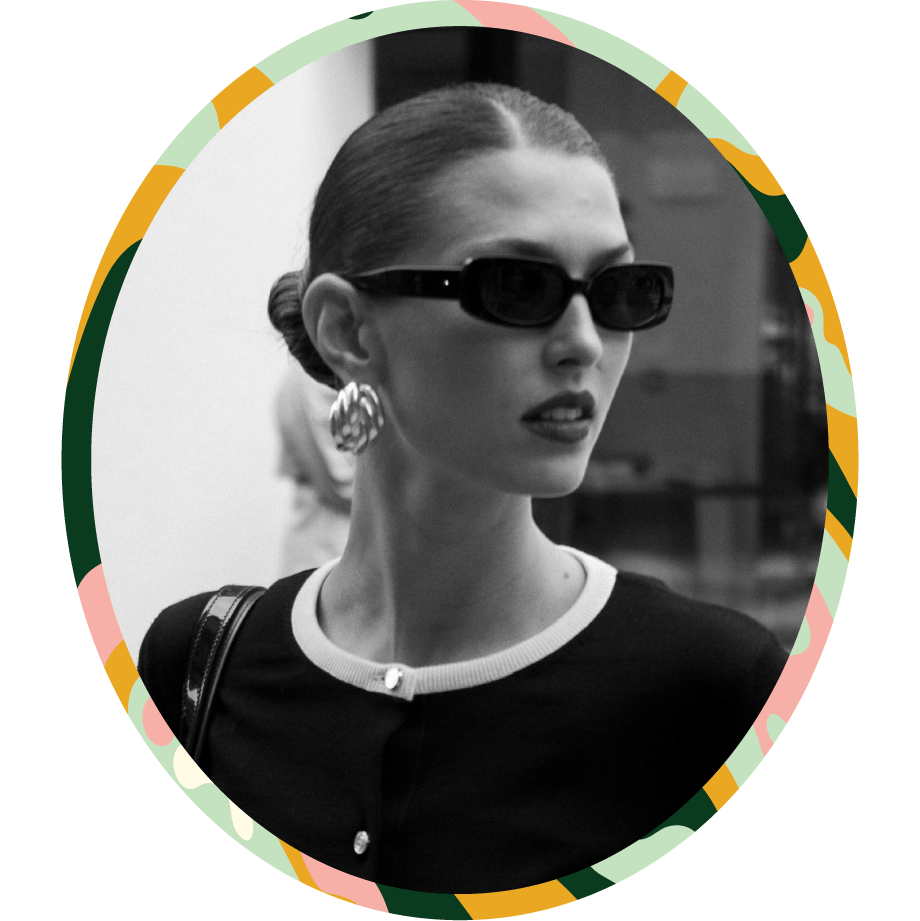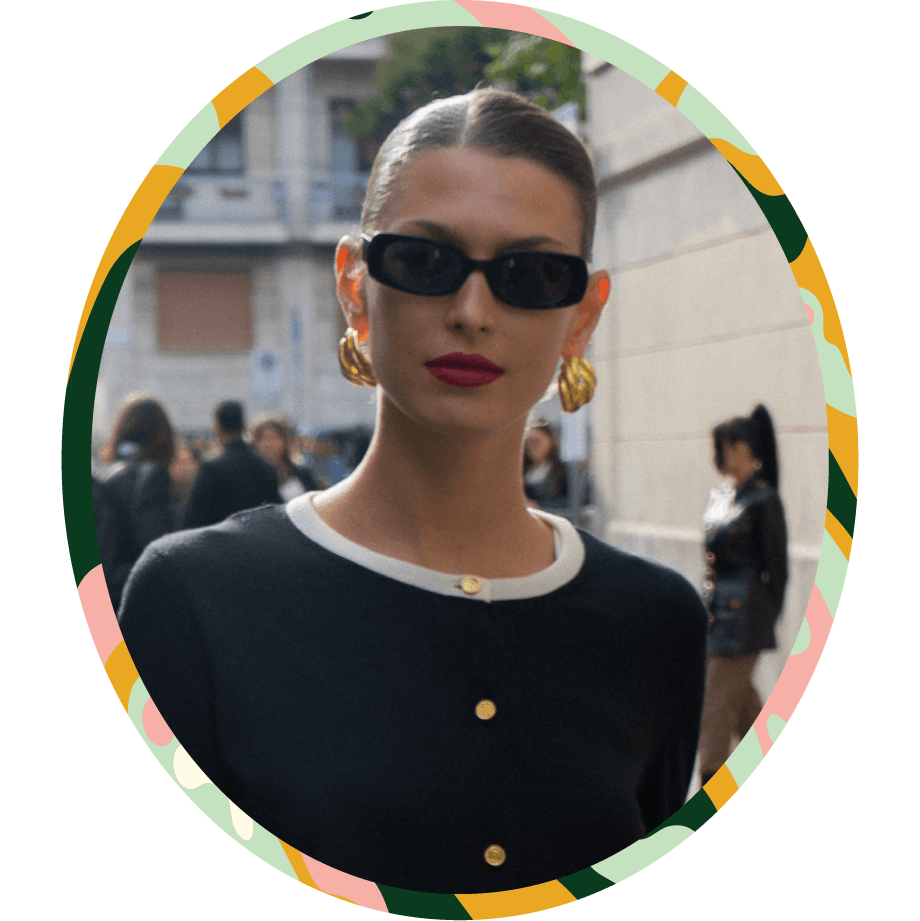Your basket
Your basket is currently empty.


£-1.00
£-1.00
In Conversation With... Danielle Copperman
Share
.png?ixlib=gatsbyFP&auto=compress%2Cformat&fit=max&w=1080&h=1080)
In Conversation With... Danielle Copperman
On the importance of slowing down and listening to your body

Date
9th October 2019
Danielle sees awareness of ourselves and the world around us as integral to keeping our wellbeing in tact. Taking health into our own hands is— as Danielle sees it—crucial.
As a young model, sustainability writer, and entrepreneur (she started the breakfast brand Qnola) Danielle is well-versed in the social pressures put upon us to maintain a “balanced” life—and like so many of us, has had to unlearn the set of rules written for women on what it means to be “healthy”.
With refreshing honesty, she admits that starting a healthy food business ironically left her feeling worse than before. It’s with this candour and self-reflection that she was able to overcome that, and focus on how to flip the switch. We caught up with the writer and founder of Qnola l to talk about her personal journey towards wellbeing and sustainability.

What does wellbeing mean to you?
For me, wellbeing is getting to know yourself, and taking responsibility and control over your health and life in general. It is about creating long-term habits to support you throughout life, and to enhance your experiences along the way. It is about physical and mental health, but also something much deeper—being conscious and mindful, creating a life that helps you thrive but also that improves the lives of others, and the health of the planet in the process.
What role does intuition have for women when it comes to their health?
I think I have always been incredibly intuitive—even at school I remember having sort of subtle thoughts and "a feeling" about things which led me to make my own decisions, unfazed by others’ opinions or suggestions. I think intuition is something everyone could benefit from strengthening. It’s like, all the time that we spend worrying or overthinking could be saved if we were more tuned in and present enough to notice and listen to our intuition. In modern life—with all our busy schedules and noisy thoughts—we are never still or silent enough to let our intuition be heard.
“
Wellbeing is getting to know yourself.
Was there a catalyst for taking control of your own health and wellbeing?
The catalyst for me was my career. Moving away from home to model full-time led me to start making more independent decisions about what I was eating, and the added pressure to stay “in shape” as a model lead me to explore and research a lot around diet and then ultimately fitness, too. That was my entry point into the world of wellness. I was fixated on eating well and working out often.
But the second catalyst came shortly after setting up my own business. I I reached complete burnout and was incredibly stressed and depressed. It took me a while to realise. I had been powering through, pushing myself to new limits and functioning at an all-time low. Despite a good diet and workout regime, I didn’t feel healthy—I wasn’t functioning well, and I was certainly not happy. This lead me to take a more holistic approach to wellbeing, and opened up a world beyond just diet and fitness.
What are some of the narratives around health and diet that you had to unlearn?
I have had to unlearn so much. Growing up—and even as an 18 year old—I thought salad without dressing and granola constructed a healthy diet. I had to unlearn that fat is the enemy. I think the biggest turning point for me has been no longer turning to processed, packaged foods for nourishment. In terms of fitness, I had to unlearn that more intense workouts are the only way to lose weight or stay fit. I now actually enjoy my workouts and do more gentle exercise but see more results, and not just physically but mentally too (where intense workouts used to stress me out even more). I’ve also had to unlearn a lot about overall physical and mental wellbeing and about conventional medicine. I’d say the key to wellbeing is education.

We see health as having three pillars—physical, mental and soulful—what have been the most crucial practices for you in supporting these?
When thinking about wellbeing I work on physical aspects (food, fitness and energy channels), mental (mindfulness, self-worth, confidence and empowerment) and soulful or spiritual (meditation, self-exploration, etc). Some of the most crucial practices for me in supporting each of these have been eating plant-based, working out in a way I enjoy, walking everywhere whenever possible, massage, reiki and qigong, brainstorming a few times a month about my goals and focuses, working on self-worth and confidence, and meditation.
What’s your relationship like with your period? Are there any self-care practices that have helped you through it?
I’m incredibly lucky to have a really gentle period and I always put that down to my lifestyle choices—I eat well, move often, don’t drink too much or smoke, and I manage my stress. I think around your period it is so important to honour your energy and try to slow down. Don’t schedule any big commitments or intense exercise, unless you feel like it. Some people feel super tired and sensitive, whilst others might feel more energised and empowered. Listen to your body and if you feel a little out of sorts, just accept it and go with it.
“
Around your period it is so important to honour your energy.
How are sustainability and wellness interlinked?
I think sustainability is all about consciousness and mindfulness. Being aware of your choices and habits and how they affect those and the environment around you. It is as much a personal journey of self-betterment as anything else. It’s learning to live with the least negative impact on the planet. I think sustainability is all about respect, and appreciation. If you do your bit to keep the planet clean, you will make it a safer place to live.
On your own sustainability journey, what have been some of the hardest things to overcome?
Some of the hardest things for me to overcome have been managing to use less plastic (I do pretty well but sometimes—especially with food or whilst abroad—it’s unavoidable!). Traveling a lot for work often means I have to travel by means that are highly polluting and unsustainable. This is something I’m constantly working on, and I always aim to be extra conscious once arrived at my destination to sort of offset the damage done during the journey.
What are some of the easiest things to overcome?
Some of the easiest things though have been cutting out meat, buying less “new” clothes (I always preferred second hand and vintage anyway), buying sustainably made clothes, walking more, cleaning up my own beauty shelf and using only vegan and natural products, not using plastic bottles or bags (always have a tote bag with me wherever I go).
